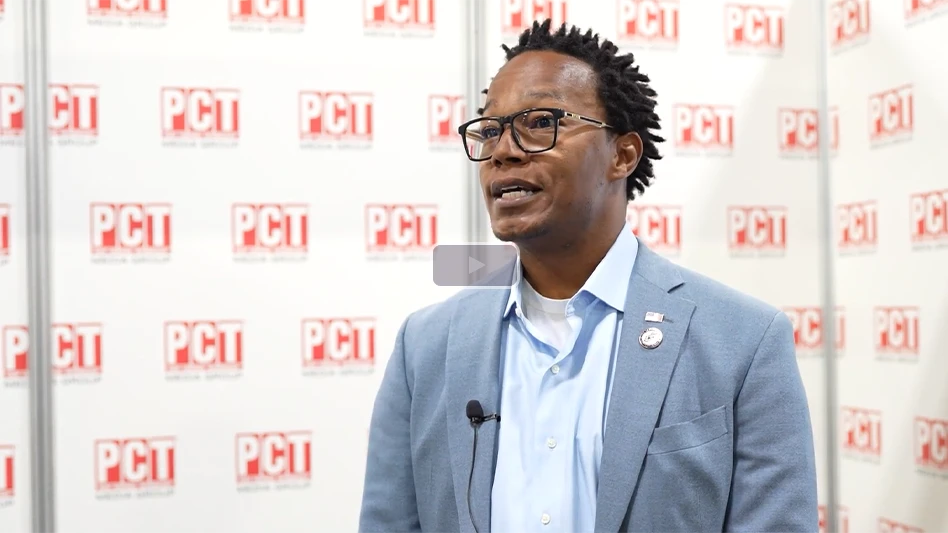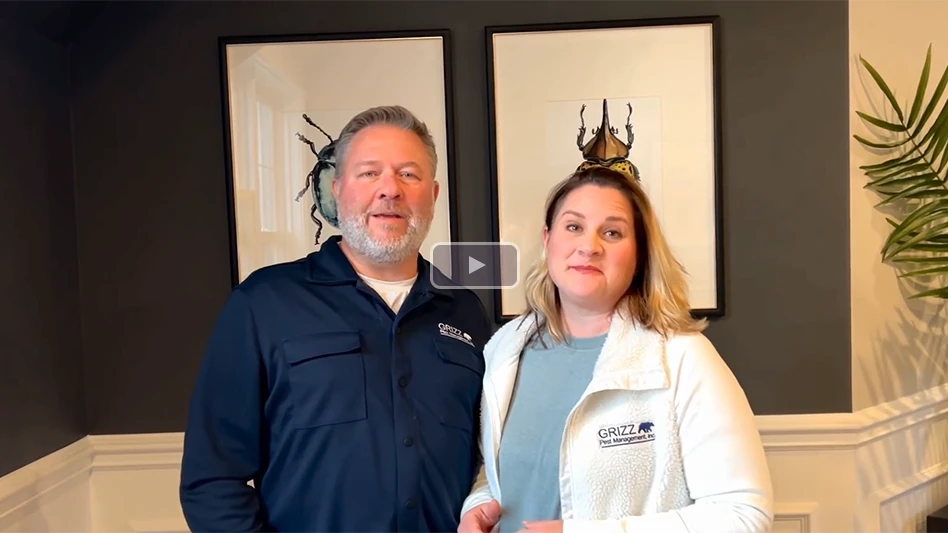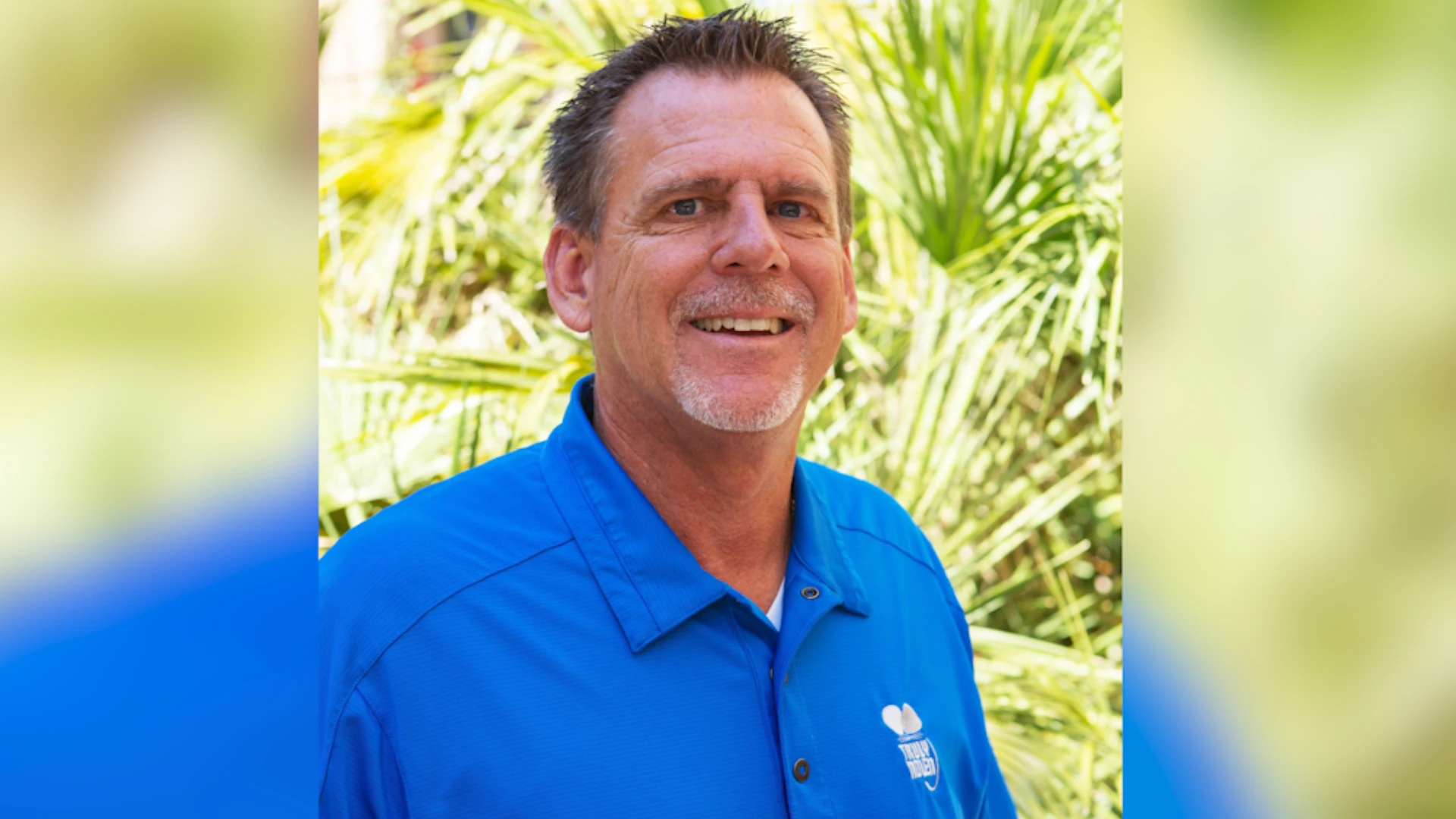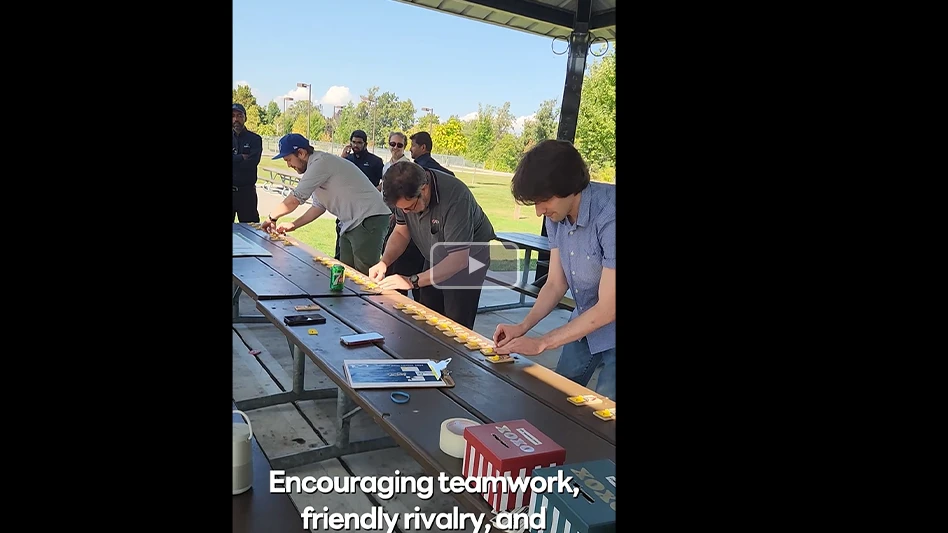Q: What was your exposure to the pest management industry prior to joining Copesan?
A: I started the "pest management" part of my career at S.C. Johnson — they manufactured the Raid family of products — and was in the commercial side of the business marketing the Bolt product line of pesticides (the commercial version of Raid). Indiana was my original sales territory and I decided to get my commercial pesticide applicators license so I could better understand how to sell the products to end users. I attended the Purdue Pest Management Conference at that time as well, and heard and met a number of our industry’s influential, talented people like Dr. Austin Frishman and Dr. Gary Bennett.
Even after I moved around within S.C. Johnson, I understood the importance and need for proper pest management services. I saw what it was like being a technician since I sold product to universities including Purdue and Indiana University which handled pest control in-house. So, when I arrived at Copesan, I was not totally surprised by what I saw. It has been refreshing and enjoyable to go from a manufacturing environment to a service environment. I love the service end of the business!
Q: What has surprised you the most about the pest management industry?
A: What’s surprised me are the service expectations we place on the technician. From having the technical knowledge — pest biology and identification — to handling tough situations and knowing what to do after they identify the pest, we expect them (technicians) to be like Sherlock Holmes and take care of the pests but also establish the human connection and communicate effectively with customers, including understanding how to use and interpret technology. The communication part is so critical today when dealing with clients.
Q: Do other service industries place as much pressure on their front-line personnel to perform at such a high-level?
A: Yes and no. For example, in the food industry, it can literally be a life-threatening situation when it comes to preventing the spread of diseases and food-borne illness. Basic things in foodservice such as washing hands are a good example of how front-line personnel can have an impact on overall performance. In our industry, front-line people are required to have more technical expertise — biology, identification, safety, communication, etc. — and we do place a lot of pressure on them to perform all of these responsibilities to deliver high quality service.
Q: Is there too much pressure placed on technicians?
A: I don’t think the pressure is too much but we do need to focus more on the soft skills part of their job description. For example, how do they share with the client that the apartment building they own has bed bugs and then relate to the tenant what needs to be done to get rid of them? There are social stigmas that come with bed bugs that the technician needs to be sensitive to when communicating with clients.
It could also take place in a food processing facility where the technician needs to sit down with the QA manager on-site and say, "Listen, you have a terrible small fly problem and your cleaning crews will have to pop every one of those drain baskets off and clean them thoroughly if you want to permanently solve this problem." The QA person is saying to themselves, "This is going to be expensive and time consuming," yet the understanding has to be if they don’t do this, the pest management issues won’t go away.
We need to be direct but respectful and put the issue on the table along with effective strategies to resolve the problem. We always say we (Copesan) want to provide pest management solutions — part of those solutions necessitates giving technicians the knowledge to communicate effectively with the client. Our industry has traditionally hired technicians according to the usual profile — investigative, detail-oriented, and task-oriented; but not targeting strong communication and people skills or comfort with technology. Times have changed and clients expect our technicians to have a complete skill set.
Q: Where do you see Copesan’s place in the market now and your role?
A: I believe we are absolutely number one in food processing/manufacturing and was delighted when we were voted as such by the readers of Food Processing magazine in their 2011 poll assessing national pest management service providers. This is the fourth time we’ve been so honored in the last five years. That says our clients appreciate what we are doing and that we are able to address their pest management needs and solve problems for them. Since Copesan is an alliance of independent, privately held companies which have the same passion for Copesan clients as they have for their own regional customers, we are able to offer local expertise and deliver the best services possible.
My role is to set the vision for our Copesan Partners and leverage that passion and talent to continue to build off our double digit growth in 2010.
Competition makes everyone better and it helps us step up our game. But nothing makes us step our game up as much as our clients. Our clients are sophisticated and are under pressure from their own clients. That makes us better by helping us work harder to deliver exceptional pest management. We are seeing demands for everything from new third-party auditing to predictive modeling for pest trends. They (customers) are who I listen to.
Q: What will Copesan have to do to keep moving forward and satisfy client demands?
A: We will continue to focus on how technology can be brought to the table to enhance reporting, efficiencies and data collection for clients. Listening to clients to identify key challenges in their environments is also a key opportunity to embrace.
Q: How has Copesan embraced and managed its growth beyond the original Partners to include its affiliates and secondary providers? How do you embrace individuality in a group setting?
A: To be part of Copesan you need to be collaborative and respect other perspectives. The pride and association people have within their own companies is certainly present in our Copesan family. We think of it as co-branding — you have Copesan’s logo on your sleeve and your own company’s logo on your pocket next to your heart. Both are on the same shirt. The opportunity is making sure everyone has the same vision to deliver exceptional service quality and account management — that includes Copesan’s national account coverage serviced with local expertise. This means we leverage and allow for flexibility based on geographic or market conditions and how we address the client’s pest management needs.
Q: How has Copesan fared with the recent mergers and acquisitions that have cost it several long-time partners? Is this a concern or an opportunity?
A: While change of Partners can be unsettling, Copesan adapts and always comes out stronger. The challenge is that Copesan is a collection of individually-owned companies. It’s their (owners) family, equity and livelihood, and they have the right to sell their companies if and when they desire. And, I want them to be successful because they will do a better job for Copesan while in the network in the long run. So, for example, when a wonderful person like Clarke Keenan (owner of Waltham Services who sold to Rollins, Inc. last year) says he wants to retire and sell the business, it can be personally sad because you no longer work closely with friends; however, it’s an opportunity for new Partners to service Copesan’s national clients.
So, there are two ways we look at M&A. Copesan always wants to be considered as a potential buyer — we have the relationship with the Partner and want them to approach us if there is an option to keep it in the "Copesan family." We also feel it presents us an opportunity to bring in the next entrepreneur to continue the service. That said, we are always willing to explore acquisition and expansion.
Q: Copesan owns and operates two companies — Wil-Kil Pest Control in Wisconsin and Holder’s Pest Control based in Houston. Does this create any conflict in working with the Partners?
A: No, it is a wonderful balance for a couple of reasons. First, these two companies are like laboratories for us. Many of our new service and training programs are field-tested through these companies. It gives us the flexibility to roll out programs and get direct feedback from the technicians, service management and customer. The other thing is that our two owned operating companies have redundant service capabilities (secondary providers) in their markets like the rest of the network. We have that depth of backup service and the same parameters apply to the operating companies. It keeps everyone finely tuned and motivated to maintain service levels.
Q: Is the interest still strong from companies looking to join the Copesan network and how do you keep secondary providers involved?
A: The interest is very strong. We regularly receive inquiries from companies interested in becoming a Copesan service provider. As for keeping our secondary partners engaged — we encourage them to sell national clients into Copesan. If you sell it, you service it. Networking and being involved in the Copesan committees is highly sought. At our recent CEO roundtable the number one thing they (CEOs) wanted is shared wisdom. That wish to learn from each other is throughout the whole organization and what makes being part of Copesan so desirable.
Q: Does Copesan have aspirations to expand into the global market?
A: Absolutely. I like to know that we can go where our clients are. For example, if it’s Central or South America, we want to be able to go there and be able to service their facilities at the same level we do here. The challenge is that you have different operating climates in each country in terms of regulatory concerns and product availability but we’ll continue to look at options so we can be there for our clients.
Q: What is the biggest challenge for commercial pest management providers — customers or insects?
A: The pest part is something we are well able to handle as an industry. The primary challenges I see are managing client expectations and listening to what the client has to say and wants us to do. Previously, people would say, "All we have to do is go in and kill the bugs, drop off a service sheet and leave." Today, there is more connectivity and clients expect us to show them pest trends and be pro-active. They want us in a pre-emptive mode vs. a reactive mode and that is the challenge — but also a huge opportunity.
Q: How have customer demands impacted Copesan?
A: We’re working with a better informed customer today and I, personally, love it. It creates an opportunity for us. I believe in being customer-centric — being able to say this is what a particular client wants and then focus our programs to the client, not just the segment. Our business model allows us to respond that way and deliver results.
Q: Has your previous experience in the business-to-business market encouraged you to make Copesan more customer-centric?
A: Yes, and people will readily tell you that. We have to listen to the client and I am a big believer in market research — especially client forums. I like being out in the field with clients and hearing what their needs are. We have a Partner scorecard that regularly measures Partner performance, client loyalty, and asks clients if they would recommend us. We are very, very client oriented.
Q: What is your metric of how the market is performing?
A: There are various metrics we measure, many being financial, but the big thing is client loyalty. It drives our programs, our Partner performance measurement and is very important to us.
This might sound strange but the economy has been good for us. Yes, we have been impacted when a client shuts down a facility; but the fact that pests are everywhere and that there is a heightened awareness of food safety has been good for Copesan The need for commercial pest management is consistent. Our metrics for success are client-driven and focused on performance. X
Q: What impact will the Food Safety Modernization Act have on providers of commercial pest management services?
A: It will make our clients more aware of things they have to do to comply and allows us to put together programs that offer the inspection and corrective actions required to achieve better food safety. This is exciting because we can blend our expertise and offer clients what they need.
Q: Does this present an opportunity for the industry?
A: Absolutely. I believe we (the industry) need to step up and be a leader in this area. We certainly know pest management and we are a huge part of creating a safe, secure environment for food preparation, handling and distribution. There has been some healthy debate on what the industry’s role should be is but if this is the way it will be regulated, I think there is an opportunity for us to play a key part.
Q: Describe your management style?
A: High energy — a person who seeks to inspire her team to gain market share and achieve results. I am very interactive and have incredible passion for Copesan and our mission.
Q: What drives you every day to be a leader?
A: It is to have impact. My entire career has been driven by asking, "How can I make a difference?" More importantly, how can I inspire and motivate others in making a difference! Whether it is with an industry group or keeping Copesan on top with food processing clients, I want to make a difference and have a positive impact. I am blessed having great people around me and, fortunately, I don’t have to know everything because I learn from these talented folks everyday!
Q: Who have been your greatest business influences throughout your career?
A: Those individuals who have found a way to do what they have a passion for and love to do.
Q: Recommended reading for business entrepreneurs?
A: A business friend recommended The Checklist Manifesto — How To Get Things Right by Atul Gawande. It is a wonderful book where the author uses fascinating stories to show how a checklist can improve our success in businesses of all kinds.
Q: Advice for someone starting out their management career?
A: Ask questions; learn from others, admit when you are wrong (which will be often!) and then apologize; be respectful; smile and keep your sense of humor.
Q: Advice for an experienced manager who is facing a tough personnel or business decision?
A: Ask for input and discuss your issues, ideas or approach with others. Develop and utilize your own network of "advisors" that will give you honest, candid feedback and respect the need for confidentiality. I belong to an organization called TEC (an affiliate of Vistage International) that is dedicated to increasing the effectiveness and enhancing the lives of CEOs through group round table discussions working to solve issues, engaging speakers to stay current and providing one-on-one coaching. I have found that learning from others is critical in making better decisions and getting better results - you don’t have to know everything yourself.

Explore the May 2011 Issue
Check out more from this issue and find your next story to read.
Latest from Pest Control Technology
- MGK Announces EPA Registration of Botanical Active Ingredient Veratrine
- Termite Control Sales Strategies
- NPMA Announces ELP Class of 2025
- Termite Control Tools and Equipment for PMPs
- Choe Reviews Drywood Termite Geographical Hotspots, Latest Research Findings
- Mosquito Squad Announces Rebranding to Mosquito Squad Plus
- Pest Control Equipment: If it’s Critical, Back it Up!
- In Memoriam: Marybeth Wonson





